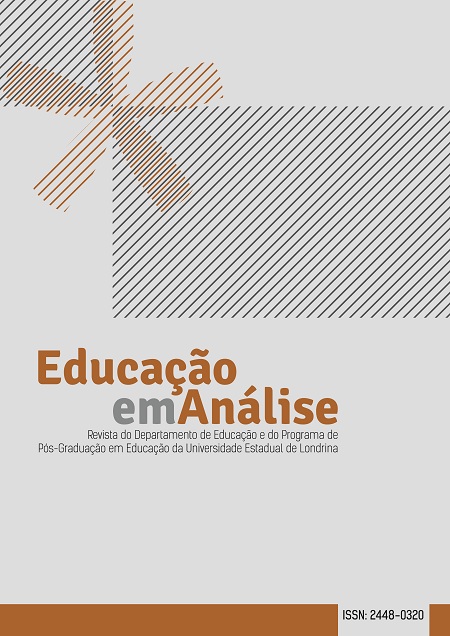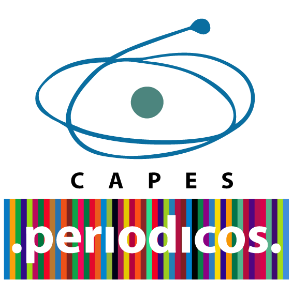School as a social environment: the integration of history and geography in fundamental education and personal experiences
DOI:
https://doi.org/10.5433/1984-7939.2018v3n2p136Keywords:
Schooling, Natural Sciences, Experience. DeweyAbstract
This article was developed around the ideas of some authors, especially John Dewey, to whose theoretical reference the thought of Anísio Teixeira, among others, was added. This allowed us to understand the current educational reality, considering the Dewey's experiences in Laboratory School of Chicago and those of Teixeira in Escola Parque Salvador, Bahia. Our interest, in this opportunity, is to investigate if such educational experiences dialogue with the reality lived in Elementary School, specifically in the integration between the History and Geography subjects. We obtained with this research the perception of how training should not only be aimed at obtaining and increasing content from a "mass" perspective, but rather that the formative proposals should favor individual development, making people able to think and reflect broadly including in the roll of their interests the issues that affect the society in which they live. This is what we were able to assess when analyzing the work developed, based on the integration of the subjects under consideration in this study. We also considered the need for school not to be seen as a parallel life in relation to social life or seen as an idealistically isolated experience, but that young people should live their lives in an independent and autonomous way in any situation where they are, relating the external experiences with those they obtain in the school, being the latter better organized and selected for the sake of their training for the common good.
Downloads
References
DEWEY, John. Democracia e Educação: introdução à filosofia da educação. Tradução de Godofredo Rangel e Anísio Teixeira. 4. ed. São Paulo: Companhia Editora Nacional, 1979. (Atualidades Pedagógicas, v. 21).
DEWEY, John. Experiência e Educação. Tradução de Anísio Teixeira. São Paulo: Companhia Editora Nacional, 1971.
FAZENDA, Ivani Catarina Arantes. Integração e Interdisciplinaridade no ensino brasileiro: Efetividade ou ideologia. São Paulo: Edições Loyola Jesuítas, 2011. 6. ed. Disponível em: http://www.pucsp.br/gepi/downloads/PDF_LIVROS_INTEGRANTES_GEPI/livro_integracao_interdisciplinaridade.pdf. Acesso em: 10 maio 2017.
FREIRE, Paulo. Pedagogia do oprimido. Rio de Janeiro: Nova Fronteira, 1978.
TEIXEIRA, Anísio. A pedagogia de Dewey: esboço da teoria de educação de John Dewey. In: DEWEY, John. Vida e educação. São Paulo: Edições Melhoramento, 1965. p. 13-41.
Downloads
Published
How to Cite
Issue
Section
License
Copyright (c) 2018 Educação em Análise

This work is licensed under a Creative Commons Attribution 4.0 International License.
Os artigos publicados na Revista Educação em Análise estão sob a Licença Creative Commons Atribuição 4.0 Internacional, garantindo Acesso Aberto. Deste modo, os autores mantêm os direitos autorais de seus trabalhos e, em caso de republicação, solicita-se que indiquem a primeira publicação nesta revista. Essa licença permite que qualquer pessoa leia, baixe, copie e compartilhe o conteúdo, desde que a devida citação seja feita. Além disso, autoriza a redistribuição, adaptação e criação de obras derivadas em qualquer formato ou meio, incluindo uso comercial, desde que a atribuição à revista seja mantida.
A revista se reserva o direito de efetuar, nos originais, alterações de ordem normativa, ortográfica e gramatical, com vistas a manter o padrão culto da língua e a credibilidade do veículo. Respeitará, no entanto, o estilo de escrever dos autores. Alterações, correções ou sugestões de ordem conceitual serão encaminhadas aos autores, quando necessário.
As opiniões emitidas pelos autores dos artigos são de sua exclusiva responsabilidade.
























